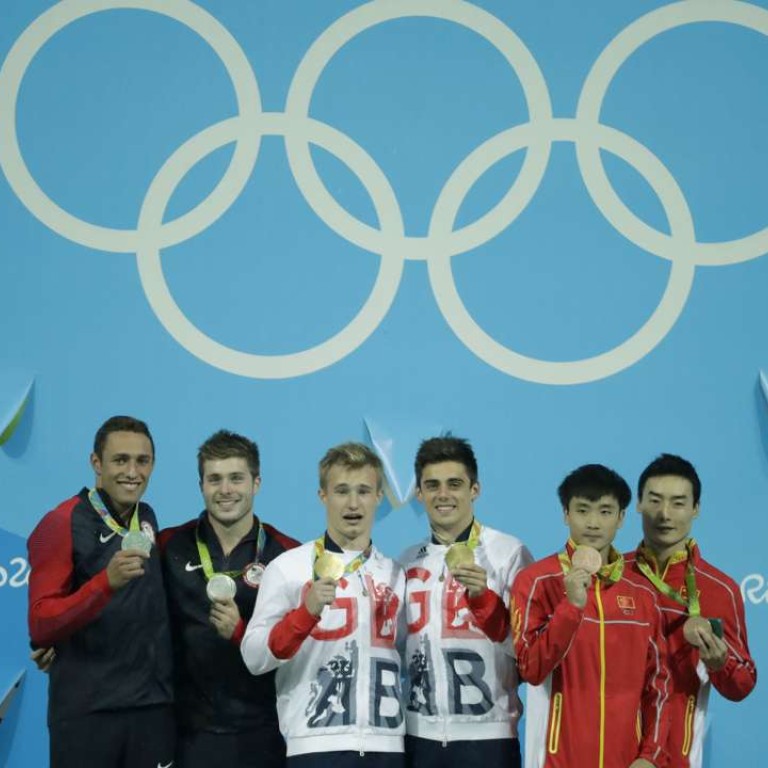
Great Britain overhauls China to take a first diving gold in huge 3m synchronised springboard upset
Jack Laugher and Chris Mears turn Rio’s green-water controversy to their advantage to win first-ever British gold medal in Olympic diving
Britain’s Jack Laugher and Chris Mears turned Rio’s green-water controversy to their advantage to win a first-ever British gold medal in Olympic diving by upsetting China on Wednesday.
The pair scored a narrow 3m synchronised springboard victory over American silver medallists Sam Dorman and Mike Hixon, as Chinese pre-event favourites Cao Yuan and Qin Kai settled for bronze in chilly and drizzly weather.
Laugher drew guffaws at a press conference by saying the Britons felt right at home in the inclement conditions and added that the unintentionally green pool – due to a chemical imbalance, officials say – aided visualisation of their dives.
WATCH: Golden moments on Day 5 at Rio Olympics
“Being from the UK, we’re very much used to rain, wind and all that kind of stuff,” he said.
“We actually quite enjoyed (the green water). It’s different from normal, it’s very easy to see. I don’t think they intended it to be that way, obviously, but it did help us in a way, I guess.”
Mears said it felt “fantastic” to win Britain’s first diving gold, a feat that has so far eluded the country’s biggest dive star, Tom Daley.
Laugher will seek a second medal in the individual 3m springboard next week, while Daley, who won bronze in the 10m synchro, returns for diving’s final event, the 10m individual.
WATCH: relive the action involving Hong Kong athletes on Day 4 and Day 5 at the Rio Olympics

Cao and Qin, the reigning world champions, led early and the venue looked set to hear China’s national anthem at the medal ceremony for a fourth time in as many days.
But the Britons took a slim lead after a sub-par Chinese dive in the third round.
The Americans made a late charge, nailing a difficult front 41/2 somersault with tuck on their sixth and final effort, scoring a 98.04, the contest’s highest mark, relegating China to third.
“It was cold out there, but we can’t use that as an excuse,” Cao said.
The Britons ended with 454.32 points, a narrow 4.11-point margin over the USA.
Qin was seeking a third straight gold in the event, which he won previously with different partners.
It was China’s first failure to capture gold in a synchronised diving event since Athens 2004.

The water controversy emerged Tuesday when athletes and spectators arrived to an algae-hued dive pool that had been a normal colour the day before.
That sent Rio 2016 officials scrambling to assure that tests proved the water safe for competition.
They blamed insufficient chlorine and the unanticipated impact of a sudden increase in pool use.
“We expect the colour to be back to blue very shortly,” Rio organising committee spokesman Mario Andrada said, adding that pool officials were partly to blame for inadequate monitoring.
An adjacent pool used for water polo and synchronised swimming also was affected, but the waters were slightly less green on Wednesday.

.png?itok=arIb17P0)